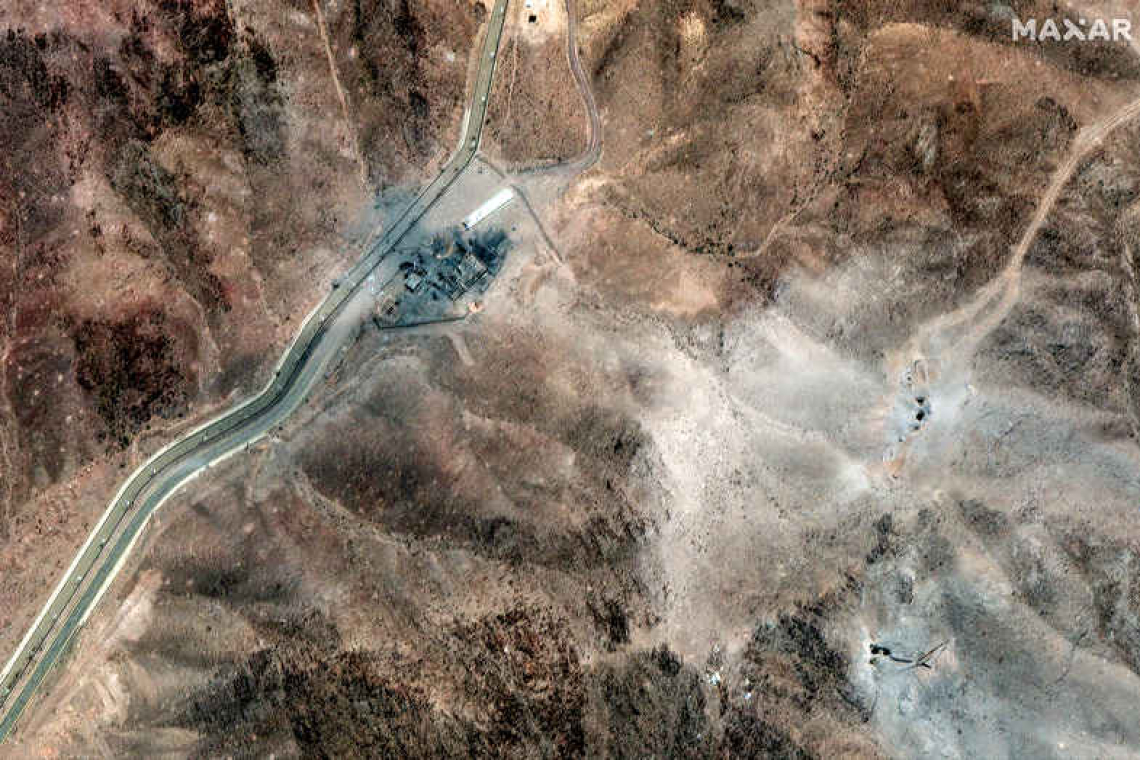WASHINGTON--U.S. airstrikes did not destroy Iran's nuclear capability and only set it back by a few months, according to a preliminary U.S. intelligence assessment, as a shaky ceasefire brokered by U.S. President Donald Trump took hold between Iran and Israel.
Earlier on Tuesday, both Iran and Israel signalled that the air war between the two nations had ended, at least for now, after Trump publicly scolded them for violating a ceasefire he announced at 0500 GMT. As the two countries lifted civilian restrictions after 12 days of war - which the U.S. joined with an attack on Iran's uranium-enrichment facilities - each sought to claim victory.
Trump said over the weekend that the U.S. deployment of 30,000-pound bombs had "obliterated" Iran's nuclear program. But that claim appeared to be contradicted by an initial assessment by one of his administration's intelligence agencies, according to three people familiar with the matter.
One of the sources said Iran's enriched uranium stocks had not been eliminated, and the country's nuclear programme, much of which is buried deep underground, may have been set back only a month or two. Iran says its nuclear research is for civilian energy production.
The White House said the intelligence assessment was "flat out wrong." According to the report, which was produced by the Defense Intelligence Agency, the strikes sealed off the entrances to two of the facilities, but did not collapse underground buildings, said one of the people familiar with its findings.
Some centrifuges still remained intact after the attacks, the Washington Post said, citing an unnamed person familiar with the report.
Trump's administration told the United Nations Security Council on Tuesday that its weekend strikes on Iranian nuclear facilities had "degraded" Iran's nuclear programme, short of Trump's earlier assertion that the facilities had been "obliterated."
Israeli Prime Minister Benjamin Netanyahu said on Tuesday that the attack on Iran had removed the threat of nuclear annihilation and was determined to thwart any attempt by Tehran to revive its weapons program. "We have removed two immediate existential threats to us: the threat of nuclear annihilation and the threat of annihilation by 20,000 ballistic missiles," Netanyahu said.
Iranian President Masoud Pezeshkian said his country had successfully ended the war in what he called a "great victory," according to Iranian media. Pezeshkian also told Saudi Crown Prince Mohammed bin Salman that Tehran was ready to resolve differences with the U.S., according to official news agency IRNA.
Israel launched the surprise air war on June 13, attacking Iranian nuclear facilities and killing top military commanders in the worst blow to the Islamic Republic since the 1980s war with Iraq.Iran, which denies trying to build nuclear weapons, retaliated with barrages of missiles on Israeli military sites and cities.
Israel's military lifted restrictions on activity across the country at 8 p.m. local time, and officials said Ben Gurion Airport, the country's main airport near Tel Aviv, had reopened. Iran's airspace likewise will be reopened, state-affiliated Nournews reported.
A White House official said Trump brokered the ceasefire deal with Netanyahu, and other administration officials were in touch with the Iranian government. The truce appeared fragile: Both Israel and Iran took hours to acknowledge they had accepted the ceasefire and accused each other of violating it.
Trump scolded both sides but aimed especially stinging criticism at Israel, telling the close U.S. ally to "calm down now." He later said Israel called off further attacks at his command.
Israel's defense minister, Israel Katz, said he told his U.S. counterpart, Pete Hegseth, that his country would respect the ceasefire unless Iran violated it. Pezeshkian likewise said Iran would honour the ceasefire as long as Israel did, according to Iranian media.
Whether the Israel-Iran truce can hold is a major question given the deep mistrust between the two foes. But Trump's ability to broker a ceasefire showed Washington retains some leverage in the volatile region.
Israeli armed forces chief of staff Eyal Zamir said a "significant chapter" of the conflict had concluded but the campaign against Iran was not over. He said the military would refocus on its war against Iran-backed Hamas militants in Gaza.







